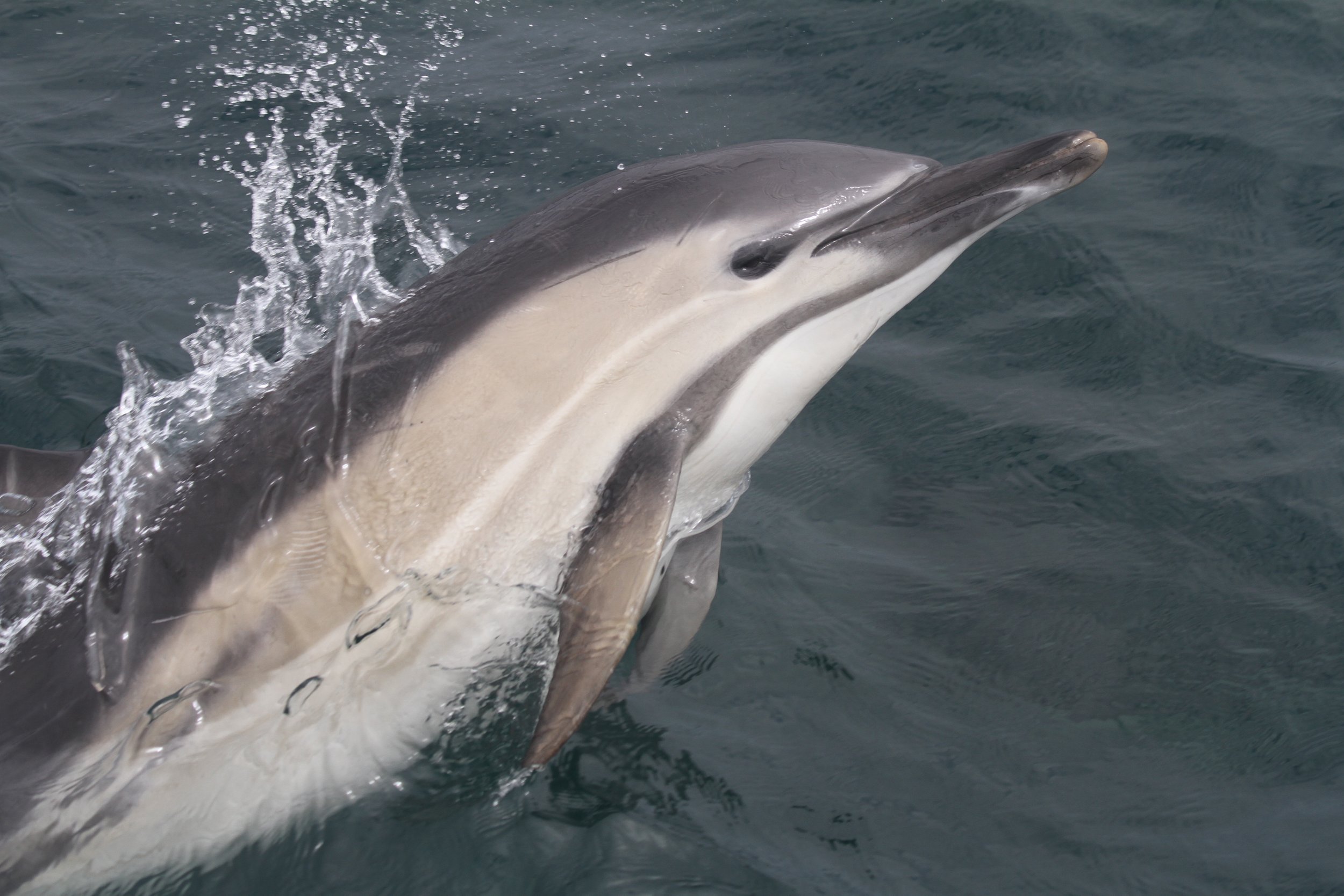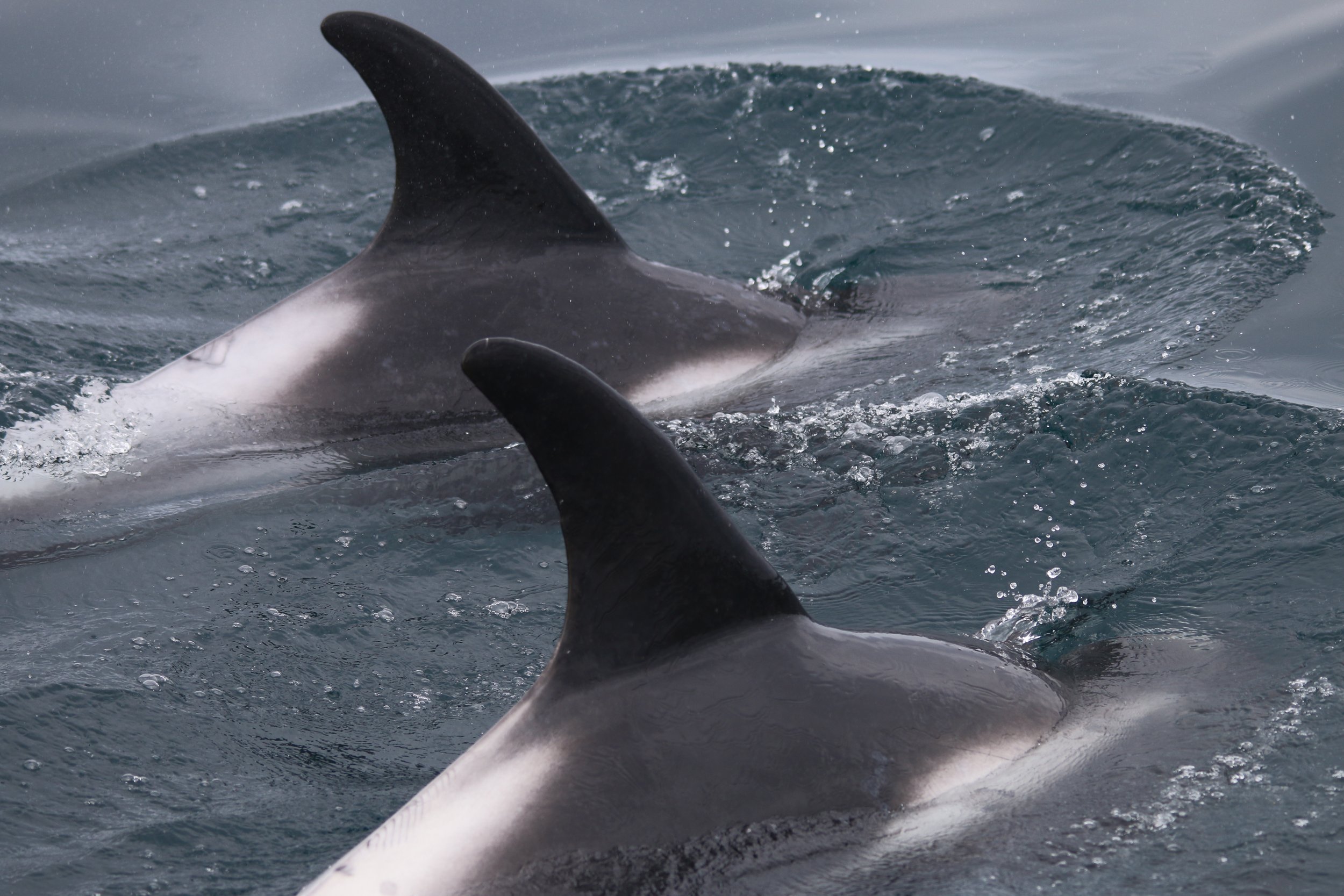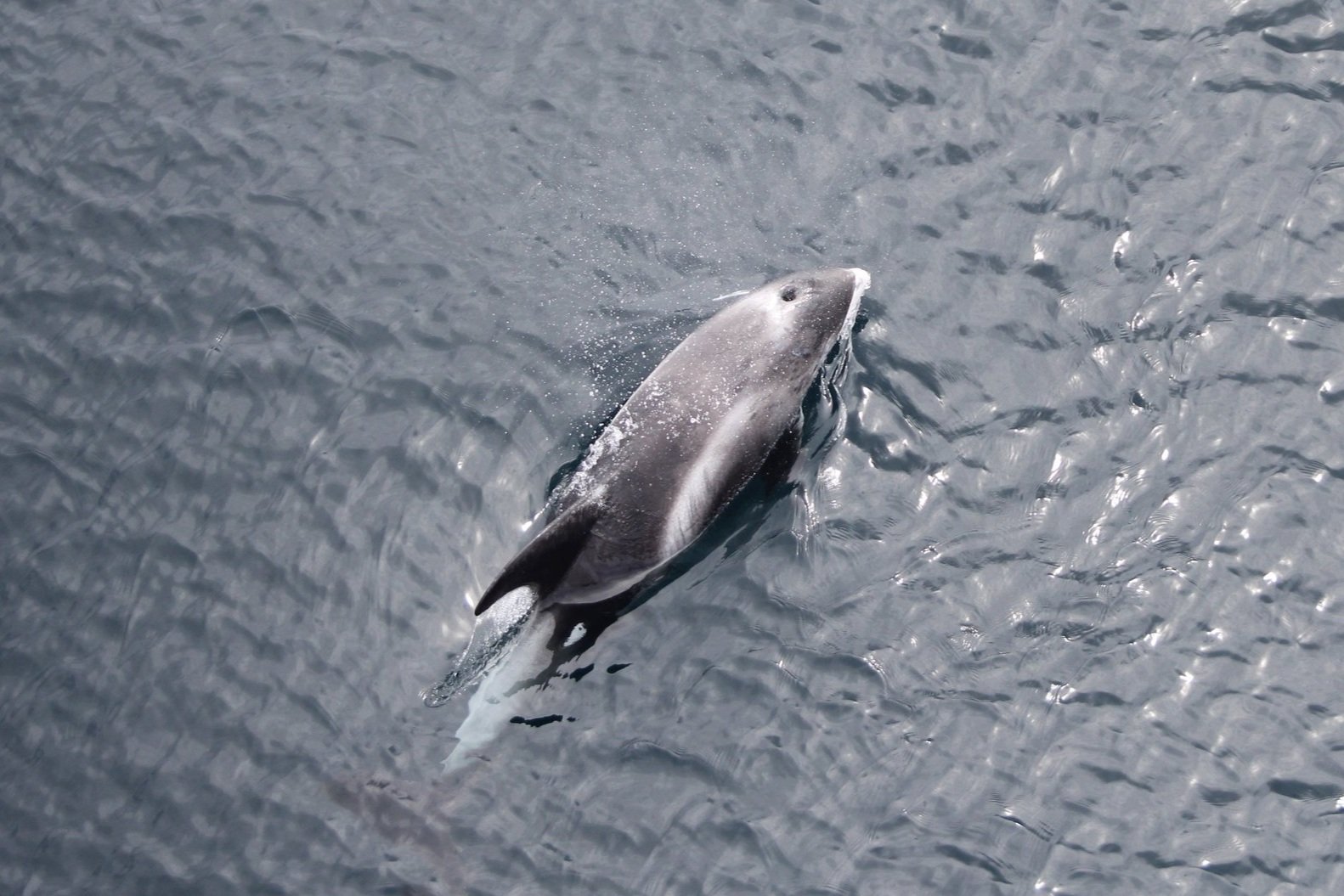What impact is climate change having on the whales in our waters?
Climate change has gone from being a fringe concern to an absolute global priority, but the impact on the oceans and marine life often gets overlooked. Our Science Officer Becky explores what climate change means for our oceans, and what impacts it could be having to the whales, dolphins, and porpoises in our waters….
When we talk about climate change, we often don’t hear enough about our oceans. Instead, the first thing we hear about is air temperature - or the global average temperature - the most commonly used measure of how fast our planet is warming. However, it’s the oceans which have absorbed 90% of the excess heat in the climate system. They are warming at much faster rates than previously thought, both at the surface and at depth. In fact, since the early 90s the rate of warming has almost doubled. These recent and unprecedented changes in temperature are profoundly changing habitats for marine ecosystems and wildlife.
Warming seas leads to a reduction in the amount of dissolved oxygen in our oceans, which is essential for the survival of aquatic organisms, leading to the expansion of oxygen minimum zones (lowest zone of oxygen concentration in the ocean's seawater). The number of dead zones - areas where there isn’t enough oxygen to support life - has also been doubling each decade due to warming and pollution. The ocean is also absorbing a quarter of all the carbon produced every year, lowering the pH and making it more acidic. A more acidic ocean makes it more difficult for animals like phytoplankton to form their shells. Phytoplankton are foundation of the food chain in the oceans AND they are also responsible for at least half of the oxygen that we breath.
Climate change is therefore a fundamental threat to marine mammals and as they are at the top of the food chain, changes in their population size and distribution can provide important indicators of environmental change. They are highly mobile predators and their presence is closely linked with the availability of their prey. Responses and the future resilience of marine mammals to climate change will vary between regions, populations, and species. So, what are we seeing in Scotland and what changes in marine mammal populations can we expect to see in the future?
Although impacts to marine mammals are thought to be greatest in polar regions, with the loss of ice affecting many species, temperate regions like Scotland are already seeing the impact of warmer sea temperatures. Around the British Isles, evidence for climate change is most clearly shown by the change in distribution, or range shift, of certain species. Cold-water cetacean species, such as the white-beaked dolphin are becoming less common, and warmer water species like the common dolphin are occurring more frequently. What is less clear is whether warming seas and potential prey shortages will affect the survival rate, risk of disease and stress levels of the cetaceans in our waters.
We do know that it is species who are specialised to a particular habitat, with specific feeding behaviour who will suffer the most due to climate change as they will be less likely to adapt to any changes. The resident species, those that occur here year-round, may therefore have a hard time adapting. We also see migratory species in our waters. They may also be affected, as their life cycle is dependent on where their prey occurs and in what numbers. Changes in the abundance or range of prey could therefore affect the time and scale of their migration and their ability to reproduce effectively.
Unfortunately, climate change is by no means the only threat that cetaceans face and any changes in on oceans should not be viewed in isolation. We need to think about the cumulative effects on cetacean populations. For the past 27 years, HWDT have been monitoring Hebridean seas, collecting information on the cetaceans in our waters and the different threats that they are facing. Long-term monitoring is essential for helping us to provide the evidence on the impacts of these threats, including climate change. It is this evidence that helps us to develop effective conservation measures to protect Scotland’s remarkable marine wildlife for future generations! Whales also play a key part in helping to combat climate change through their role in the marine ecosystem. Protecting them will help us in our fight against climate change. Find out why in our next blog!
FEELING INSPIRED TO GET INVOLVED WITH OUR MARINE CONSERVATION EFFORTS AND HELP US PROTECT THE WHALES IN OUR WATERS? JOIN OUR WHALE TRACK COMMUNITY AND HELP MONITOR THE CHANGES IN OUR SEAS. BY RECORDING WHAT YOU’VE SPOTTED, WE CAN GATHER EVIDENCE OF ANY CHANGES AND TRY TO BETTER UNDERSTAND THE IMPACT THAT CLIMATE CHANGE IS HAVING ON OUR MARINE ENVIRONMENT.






